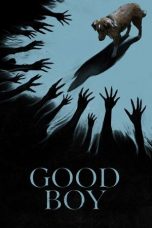Cannibal Holocaust (1980) Movie Review – Where to Watch Online
Cannibal Holocaust (1980), directed by Ruggero Deodato, is one of the most controversial and infamous films in cinematic history. This Italian horror film is notorious for its graphic violence and depiction of real animal cruelty, which has sparked debates about the ethics of filmmaking and the boundaries of artistic expression. Despite its notoriety, Cannibal Holocaust is a significant work that has influenced the horror genre and continues to provoke discussion. In this review, we will explore the plot, characters, themes, and where to watch the film online in the U.S.
Plot Summary: A Gruesome Journey into the Amazon
The film follows a rescue mission led by anthropologist Professor Harold Monroe (Robert Kerman) into the Amazon rainforest to find a missing documentary crew. The crew, which was filming a documentary about cannibal tribes, had not returned, and their footage is presumed to be lost. Monroe is accompanied by a team of locals who guide him through the treacherous terrain.
As they search for the crew, Monroe and his team uncover disturbing evidence of the crew’s actions, leading them to discover the horrific fate that befell the filmmakers. Through a series of flashbacks, the audience sees the crew—Faye (Francesca Ciardi), Mark (Giovanni Lombardo Radice), and Alan (Perry Pirkanen)—engaging with indigenous tribes in increasingly unethical and exploitative ways. The documentary team’s intentions blur the lines between professionalism and voyeurism, ultimately leading to their demise.
The film is structured as a “found footage” narrative, as Monroe reviews the footage recovered from the crew, showcasing their interactions with the indigenous tribes and the gruesome events that unfold. The result is a chilling commentary on the nature of media, exploitation, and the consequences of colonialism.
Characters: The Moral Ambiguities of Documentary Filmmaking
Cannibal Holocaust features a small cast of characters, each representing different aspects of the narrative.
- Professor Harold Monroe (Robert Kerman): The protagonist, Monroe, serves as the moral compass of the film. He is conflicted about the actions of the documentary crew and is determined to uncover the truth behind their disappearance. Kerman’s performance adds depth to a character grappling with the ethical dilemmas of documentary filmmaking.
- Faye (Francesca Ciardi): A member of the documentary crew, Faye embodies the complexities of the film’s moral landscape. She is initially portrayed as a victim but also engages in questionable actions that lead to dire consequences. Ciardi’s performance captures the character’s evolution as events spiral out of control.
- Mark (Giovanni Lombardo Radice): Another member of the crew, Mark’s reckless behavior highlights the film’s critique of exploitation in media. His character becomes increasingly antagonistic, demonstrating the dangers of unchecked ambition.
- Alan (Perry Pirkanen): The third member of the crew, Alan’s actions contribute to the film’s commentary on the ethics of documentary filmmaking. His fate serves as a warning about the consequences of disrespecting cultural boundaries.
- Indigenous Tribes: The film features various indigenous characters who are portrayed in a complex light, challenging the viewer’s perceptions of civilization and savagery.
Themes: Exploitation, Colonialism, and the Nature of Media
Cannibal Holocaust delves into several significant themes that resonate throughout the film, making it a critical commentary on society and media.
Exploitation and Voyeurism
The film critiques the exploitation of indigenous cultures by filmmakers and the voyeuristic tendencies of audiences. It raises questions about the ethics of documenting suffering and the consequences of treating subjects as mere spectacles for entertainment.
Colonialism and Cultural Misunderstanding
Cannibal Holocaust highlights the destructive effects of colonialism, emphasizing the cultural misunderstandings that arise when outsiders intrude upon indigenous communities. The film portrays the brutality of both the colonizers and the colonized, blurring the lines between civilization and savagery.
The Nature of Media
The film serves as a commentary on the power of media and its ability to manipulate perceptions. The found footage format challenges viewers to consider the authenticity of what they see and the ethical responsibilities of filmmakers. The crew’s descent into moral ambiguity raises questions about the integrity of documentary filmmaking.
Visual Style and Direction
Ruggero Deodato’s direction is integral to the film’s impact. The cinematography is raw and unsettling, with an emphasis on realism that enhances the film’s horror elements. The use of found footage creates a sense of immediacy, immersing viewers in the gruesome reality of the narrative.
The film is notorious for its graphic depictions of violence and gore, pushing the boundaries of what is acceptable in cinema. The visceral imagery, combined with the haunting soundtrack, creates an unsettling atmosphere that lingers long after the credits roll.
Music: A Disturbing Soundtrack
The film’s score, composed by Riz Ortolani, juxtaposes haunting melodies with the horrific visuals, creating a dissonance that heightens the film’s emotional impact. The music serves to underscore the tension and dread throughout the film, further immersing viewers in its unsettling world.
Critical Reception: A Polarizing Classic
Cannibal Holocaust has garnered a polarizing reputation since its release. Critics have lauded it as a groundbreaking work that challenges the boundaries of horror and documentary filmmaking, while others have condemned it for its graphic violence and animal cruelty.
Despite the controversy, the film has left a lasting legacy, influencing subsequent filmmakers and shaping the found footage genre. Its commentary on the ethics of media and exploitation continues to resonate, sparking discussions about the responsibilities of filmmakers and the impact of their work.
Streaming Services: Where to Watch Cannibal Holocaust Online
As of 2024, Cannibal Holocaust is available on various streaming platforms, allowing horror enthusiasts to experience this infamous film.
Streaming Platforms
- Shudder
- The film is available for streaming on Shudder, a platform dedicated to horror, thriller, and supernatural content, making it a suitable choice for fans of the genre.
- Amazon Prime Video
- Cannibal Holocaust can also be found on Amazon Prime Video, where subscribers can watch the film as part of their membership.
Rental and Purchase Options
- Google Play Movies & TV
- Viewers can rent or purchase Cannibal Holocaust on Google Play, providing flexibility for those who want to watch without a subscription.
- Vudu
- The film is available for rent or purchase on Vudu, offering additional options for viewers interested in exploring this controversial classic.
- YouTube
- Audiences can also find Cannibal Holocaust available for rent or purchase through YouTube Movies.
Conclusion: A Challenging yet Significant Film
Cannibal Holocaust (1980) remains one of the most challenging films in horror history, pushing the boundaries of cinematic expression while exploring profound themes of exploitation, colonialism, and the ethics of media. Ruggero Deodato’s direction and Jean-Claude Van Damme’s performances create a disturbing yet thought-provoking experience that lingers long after viewing.
For those willing to confront its graphic content and ethical implications, Cannibal Holocaust offers a powerful commentary on the nature of humanity and the responsibility of filmmakers. With multiple streaming options available, it’s an essential watch for those interested in the intersection of horror and social commentary.
















